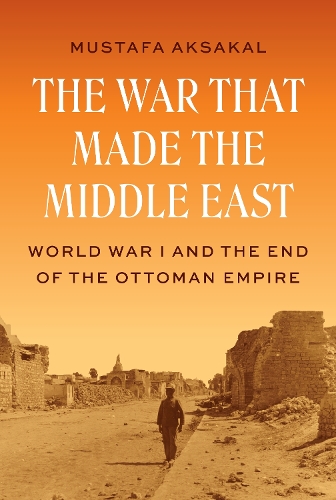
The War That Made the Middle East: World War I and the End of the Ottoman Empire
(Hardback)
Publishing Details
The War That Made the Middle East: World War I and the End of the Ottoman Empire
By (Author) Mustafa Aksakal
Princeton University Press
Princeton University Press
22nd April 2026
United States
Classifications
Tertiary Education
Non Fiction
First World War
Colonialism and imperialism
Human rights, civil rights
Physical Properties
Hardback
256
Width 156mm, Height 235mm
Description
A new history that tells the story of how European imperial ambitions destroyed the Ottoman Empire during the Great War and created a divided and unstable Middle East
The Ottoman Empire's collapse at the end of the First World War is often treated as a foregone conclusion. It was only a matter of time, the story goes, before the so-called Sick Man of Europe succumbed to its ailments-incompetent management, nationalism, and ethnic and religious conflict. In The War That Made the Middle East, Mustafa Aksakal overturns this conventional narrative. He describes how European imperial ambitions and the Ottoman commitment to saving its empire at any cost-including the destruction of the Armenian community and the deaths of more than a million Ottoman troops and other civilians-led to the empire's violent partition and created a politically unstable Middle East.
The War That Made the Middle East shows that, until 1914, the Ottoman Empire was a viable multiethnic, multireligious state, and that relations between the Arabs, Jews, Muslims, and Christians of Palestine were relatively stable. When war broke out, the Ottoman government sought an alliance with the Entente but was rejected because of British and French designs on the Eastern Mediterranean. After the Ottomans entered the fight on the side of Germany and were defeated, Britain and France seized Ottoman lands and new national elites in former Ottoman territories claimed their own states. The region was renamed "the Middle East," erasing a robust and modernizing 600-year-old empire.
A sweeping narrative of war, great power politics, and ordinary people caught up in the devastation, The War That Made the Middle East offers new insights about the Great War and its profound and lasting consequences.
Author Bio
Mustafa Aksakal is associate professor of history and the Nesuhi Ertegn Chair of Modern Turkish Studies at Georgetown University. He is the author of The Ottoman Road to War in 1914: The Ottoman Empire and the First World War.
